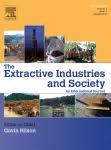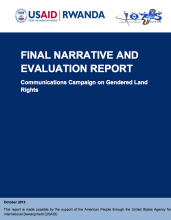Land Library
Welcome to the Land Portal Library. Explore our vast collection of open-access resources (over 74,000) including reports, journal articles, research papers, peer-reviewed publications, legal documents, videos and much more.
/ library resources
Showing items 1 through 9 of 142.The land rush has remained, and is likely to remain, a significant global phenomenon despite waning international media attention. The scope of the phenomenon is likely to be wider than previously thought.
Smallholder farmers are an important piece in the country’s agriculture puzzle and attainment of food security.
With the globe facing looming food security issues, the smallholder farmers are and have always been stakeholders not be left behind.
We estimate how a shift towards a more extractive resource policy, brought about by a regulatory reform of the mining sector, affected civil conflict in the Philippines.
This study determined pre-conflict, conflict and post-conflict land use change and analysed the impact o
The narrative of Ethiopia’s remarkable economic growth path under a developmental state model is that of a strong ruling coalition united behind the vision of the late Prime Minister Meles Zenawi.
This report presents the results of a small scale household survey that was conducted in May
2015 to assess the extent to which rural Rwandan citizens are vulnerable or resilient to
environmental, market and land tenure risks and the level they understand the laws and rights
Residential land in Rwanda is scarce due to hilly terrain, a high population and a focus on agricultural growth to address food security concerns.
Between October 2014 and October 2015, Radio Ishingiro with the support of USAID
Land Project implemented a Communications Campaign focused on influencing the
attitudes and mindsets of men and boys about gender-equal land rights to overcome
This research, entitled "The Impact of Gendered Legal Rights to Land on the Prevalence and Nature of Intra- and Inter-Household Disputes" set out to interrogate the changing landscape of gendered land rights in Rwanda, and to examine the impact of the statutory changes introduced by laws governin








